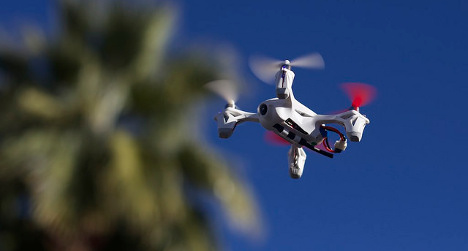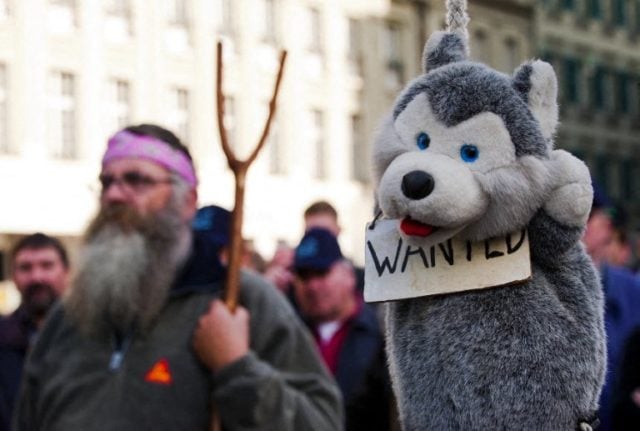FARMING
Swiss start-up to offer drone service to farmers
A company in Sierre, in the canton of Valais, wants to be the first in Europe to offer drone-based crop-spraying services to farmers.
Published: 4 August 2016 11:06 CEST

File photo: Andrew Turner
Founded in 2015, Fly & Film currently uses drones to offer aerial photography services to ski tourists, athletes and mountaineers.
Now it thinks drones could also be ideal for so-called ‘aero-spraying’.
Speaking to The Local, its director Frédéric Hemmeler said they were looking to get into a “niche that is not already occupied” and one which will become more and more important in the future since the use of helicopters to spray crops is already outlawed in most of Europe.
“What interests us is agriculture in general,” he said, saying the technology could be used not just for pesticides but for spraying organic and alternative treatments such as essential oils, for example.
Drones have the ability to be very precise, and have much less impact on the terrain than using tractors which compact the soil, causing damage to crops, he said.
Though still in the testing phase, the company has received encouragement from Switzerland’s agriculture sector, including winegrowers.
“The demand in the agriculture sector is very, very strong for an alternative system to helicopters,” Hemmeler told The Local.
The company is also working to develop drones that could scan farmers’ terrain and analyze its condition to find out “where there are problems, where there are illnesses, where isn’t there enough water…” he said.
“That’s a service we will offer allowing farmers to spot areas which need to be treated differently or more than others.”
“There are lots of possibilities. For agriculture in general it’s really a big innovation,” he added.
The service could be launched “in a matter of months”, and in the meantime the company has created a drone pilot training school to find talented pilots who could run the service.
Taking its first students on August 22nd, the school aims to teach people the mechanics of flying drones as well as the rules and regulations surrounding the technology.
“We will use it to spot pilots we will later take on as ‘aero-spraying’ pilots,” said Hemmeler.
While no authorization is required to fly drones of up to 30kg in Switzerland, certain rules and restrictions apply as to where and how they may be flown.
They may not be flown over large gatherings of people or near airports and airfields, for example.
A drone pilot must keep the drone within his sight at all times.
Url copied to clipboard!


 Please whitelist us to continue reading.
Please whitelist us to continue reading.
Member comments